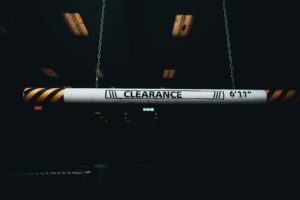HR 3151 IH – Shipbuilding and Harbor Infrastructure for Prosperity and Security Act of 2025
The Shipbuilding and Harbor Infrastructure for Prosperity and Security Act of 2025 aims to enhance the country’s maritime capabilities and promote economic growth. In this post, we will outline the key provisions of the bill.
Section 1: Treatment of Maritime Prosperity Zones as Opportunity Zones
The bill designates certain areas as “maritime prosperity zones” and treats them as “qualified opportunity zones” under section 1400Z–3 of the Internal Revenue Code.
- These zones are designated by the Maritime Administrator, in consultation with the Secretary of the Navy and the Maritime Security Board.
- The designation is made for a period of five calendar years, which may be extended by an additional two years if certain conditions are met.
Section 2: Qualifications for Opportunity Zone Treatment
To qualify as a qualified opportunity zone, the area must meet certain criteria:
- The area must be substantially used in an industry that is assigned a code under the North American Industrial Classification System.
- The area must contain or be determined to be a viable site for a shipyard of the United States, a port, or a harbor facility.
Section 3: Effective Date and Implementation
The bill takes effect on the date of its enactment. The Secretary of the Treasury may issue regulations to implement this section within 180 days of its enactment.
Section 4: Special Rule for Maritime Prosperity Zones Designated Solely by Reason of This Section
In applying this subchapter to any maritime prosperity zone which is a qualified opportunity zone solely by reason of this section, section 1400Z–2(d) shall be applied with the modifications described in paragraph (2). These modifications are as follows:
- The date of the enactment of the Shipbuilding and Harbor Infrastructure for Prosperity and Security Act of 2025 is substituted for December 31, 2017.
- Property shall not be treated as qualified opportunity zone business property unless such property is substantially used in an industry that is assigned a code under the North American Industrial Classification System.
- A trade or business shall not be treated as a qualified opportunity zone business unless such trade or business operates in an industry that is assigned a code under the North American Industrial Classification System.
Section 5: Maritime Prosperity Zone
The term “maritime prosperity zone” means any population census tract that:
- Contains or is determined by the Maritime Administrator to be a viable site for a shipyard of the United States, a port, or a harbor facility.
- Is designated as a maritime prosperity zone under paragraph (2).
Section 6: Designation and Notification
A population census tract is designated as a maritime prosperity zone under this section if:
- The Maritime Administrator, in consultation with the Secretary of the Navy and the Maritime Security Board, nominates the tract for designation.
- The nomination is made in writing to the Secretary and certified by the Secretary.
Section 7: Period of Effectiveness
Except as provided in paragraph (2), a designation as a maritime prosperity zone shall remain in effect for the period:
- Beginning on the date of the designation, and.
- Ending at the close of the fifth calendar year beginning on or after such date of designation.
This post provides an overview of the Shipbuilding and Harbor Infrastructure for Prosperity and Security Act of 2025. The bill designates certain areas as “maritime prosperity zones” and treats them as “qualified opportunity zones.” These zones are designated by the Maritime Administrator, in consultation with the Secretary of the Navy and the Maritime Security Board.



